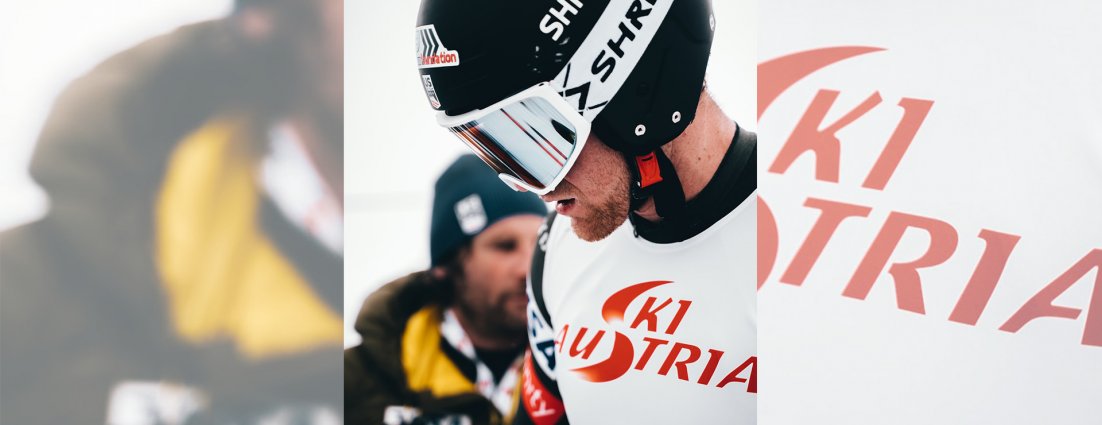What Ski Racing Has Taught Me
02.03.2021 | Ryan Cochran-Siegle

Life lessons learned over the course of nearly a dozen years on the U.S. Ski Team.
This is now my 11th season on the U.S. Ski Team, which may seem like a lifetime, especially to those born after 2010. More wisened readers may only consider it enough time to get my feet wet. Regardless of where you are in your career, I hope you will find the following takeaways from my time on the course useful. Some of these were learned the easy way, others the hard way, and a few are still sinking in. Here’s my Top 5:
5. Results Don’t Matter As Much As You Think They Do
Back in early December, I was eating dinner with my teammate and good friend Tommy Ford. He had just gotten 2nd place in the Santa Caterina World Cup GS, so I enviously asked him what that was like. In my head I’d built up that kind of success to be a life-changing experience, and I so badly wanted to know the feeling firsthand. He said, more or less, that it was a good feeling but really nothing more, similar to what any other ski racer might feel on any other good day. Part of me doubted I could ever have a day like Tommy had just had, especially not anytime soon. As fate would have it, less than two weeks later I would have that kind of day, and I promise you, Tommy described it perfectly. I found far more joy and happiness in my skiing between the start gate and finish line than in any of the moments that followed. Standing on a podium was nice and I did my best to take it all in, but it was not the be-all-end-all moment I had envisioned it to be. You have to learn to appreciate the moment, enjoy it for what it is, and then just as quickly move on from it. The skiing will always be what’s most important.
4. Embrace the Challenges As Growth Opportunities
Toward the middle of last season, I read a book that completely changed my perspective on setbacks. The book, Mindset, by Carol Dweck, is a must-read for anyone trying to improve on something in their life (any really, who isn’t?). To summarize, there are two types of mindsets: fixed and growth. A fixed mindset is one that focuses entirely on results and past achievements, while a growth mindset is solely focused on learning and self-improvement. Grasping this ideology has allowed me to view obstacles as opportunities from which to learn rather than hurdles by which I am judged. For example, I used to struggle as a glider in terms of my speed skiing. I knew I could make great turns in technical sections, but I would consistently lose time to other more “natural” speed skiers in other places. Rather than accepting this as the way it would always be, I acknowledged my weakness and made a strong effort to improve upon it. Gliding was a challenge for me, but something that I knew I needed to overcome in order to get better. It took countless hours focusing on snow, being deliberate with my effort, trying various approaches, and analyzing my movements on video. Slowly with time I improved. Ownership is opportunity, which is why openness to learning has been fundamental to my growth as a skier.
3. Keep it Simple, Stupid
When you get down to it, skiing can be a simple sport. A racer’s time is solely dependent on optimizing three variables: potential energy, kinetic energy, and distance traveled. That’s it. Whether in a race, in training, or freeskiing, your focus should be just as simple. Something you can repeat to yourself and feel to your core. As you improve and your focus becomes second nature, then you can add something new to think about, and repeat, repeat, repeat. These focuses will stack up over time to a point where everything comes easily without consciously thinking about it. You will feel every movement in sync and with purpose. This should be your goal. If you try to bring too much complexity all at once, everything will fly right out the window by the second gate.
2. Learn to Love the Nitty-Gritty
Being a professional ski racer is not the glitz and glamour it can be built up to be. The behind-the-scenes that are kept out of your social media feeds are full of unseen fundamentals; hours upon hours of video analysis, hand-washed laundry in sinks and bathtubs, listening to a coach’s critical feedback, missed family holidays, fine-tuning equipment, frostbitten toes, etc. Every minute that you see us on TV represents our lifetime’s work and sacrifice that it has taken to be here. The sooner you learn to embrace and find joy in each and every part, the faster you’ll find yourself ascending the ranks.
1. It has to be fun
I find heaven every time I make a fluid arc—when I’m flying down the mountain floating over rollers and off-cambered terrain, slapping plastic on I-89 at Cochran’s, or soaring 70 meters in the air on downhill skis in the Dolomites. It doesn’t matter if it’s sunny or raining, groomers or powder, I’ve fallen in love with playing in it all. Keeping that perspective is key. If you ever lose that sense of joy then you know it’s time to move on. Because at the end of the day, if it isn’t fun, why bother?
-